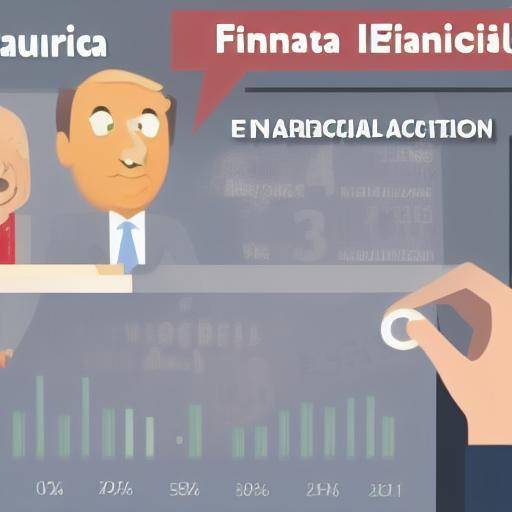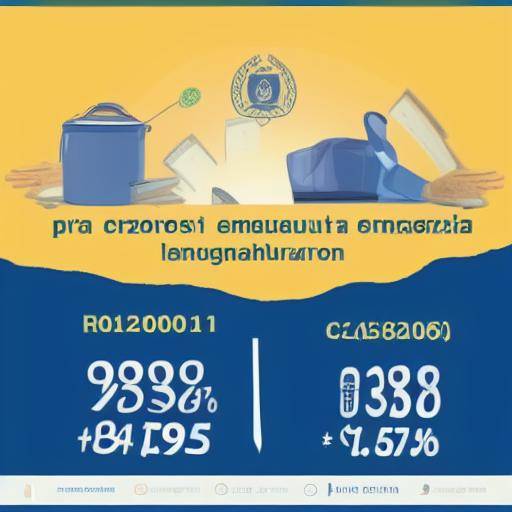
Introduction
Debts can significantly affect people's quality of life. However, having a solid foundation in financial education can make the difference between living debt burdened and achieving economic freedom. In this enlarged article we will explore how knowledge, discipline and informed decision-making in financial matters can be powerful tools to get rid of debt and build a healthy financial future.
Knowledge: The fundamental basis for sound financial education
Financial knowledge is the cornerstone on which a solid foundation is built to make informed and effective financial decisions. By obtaining information on concepts such as savings, investment, budgeting and credit management, people may have a clearer understanding of their financial situation and the options available to overcome debt.
Importance of financial knowledge
The lack of understanding of basic concepts such as interest rates, inflation and credit management can lead to harmful financial decisions. Acquiring knowledge in this field allows people to understand how these aspects work and therefore make more informed and successful decisions in managing their personal finances.
Evolution of financial education
Throughout history, financial education has evolved to adapt to changes in the financial system. From the first notions of trade and trade to the intricate network of modern financial transactions, financial knowledge has been vital to the economic progress of societies.
Development of financial skills
Acquiring financial knowledge involves not only understanding theoretical concepts but also developing practical skills to apply this knowledge in real life. This includes the ability to create and maintain a budget, make informed investment decisions and use financial instruments such as credit cards and loans responsibly.
Discipline: The Pillar for Effective Debt Management
Financial discipline is essential for overcoming debt and maintaining a stable long-term economic situation. The ability to establish and maintain healthy financial habits, such as regular savings and expenditure control, plays a crucial role in the process of getting out of debt.
Importance of financial discipline
Financial discipline involves constantly applying good financial practices over time. Establishing realistic financial objectives, maintaining a balanced budget and resisting the temptation of unnecessary spending are central aspects of financial discipline that contribute significantly to getting out of debt.
Growing healthy financial habits
Growing healthy financial habits requires commitment and self-discipline. This includes the ability to differentiate between needs and desires, avoid excessive loan and achieve a balance between current enjoyment and long-term financial security.
Decision-making: The strategic approach to getting out of debt
Strong and strategic financial decision-making is critical to overcoming debt and building a strong financial future. The ability to evaluate different options, understand financial implications and make long-term goals-based decisions is essential for achieving financial stability.
Decision-making
Making informed decisions involves carefully evaluating available options, considering short- and long-term implications, and selecting the alternative that best fits personal financial objectives.
Financial risk management
Effective financial decision-making also involves risk management associated with different options. Assessing the relationship between risk and return, understanding the consequences of each decision and planning contingencies are key aspects of prudent financial decision-making.
Conclusion
Financial education, supported by knowledge, discipline and informed decision-making, is an invaluable resource for those seeking to free themselves from debt and build a stable financial future. By acquiring solid knowledge in personal finance, cultivating financial discipline and making strategic decisions, people can not only overcome debt but also lay the foundation for a prosperous and secure financial life.
Frequently asked questions
1. Why is it important to have financial knowledge when facing debt?
Having financial knowledge allows a complete understanding of the nature of debts, evaluating different options to overcome them and avoiding harmful financial practices.
2. How can I cultivate financial discipline to effectively manage my debts?
Financial discipline can be cultivated by establishing clear financial objectives, keeping a detailed budget and resisting the temptation of unnecessary expenses.
3. What role does informed decision-making play in overcoming debts?
Substantial decision-making allows the assessment of available options, taking into account associated risks and benefits, and the selection of the most appropriate strategy to effectively get out of debt.
4. What are the consequences of lack of financial education when facing debt?
Lack of financial education can result in harmful financial decisions, increased lending and difficulties in effectively getting out of debt.
5. What are some practical strategies for implementing financial knowledge in debt management?
The application of financial knowledge in debt management is to prioritize payments, seek new refinancing alternatives and avoid incurring new debts while resolving existing debts.
6. What additional resources can I use to expand my financial knowledge and improve my debt management skills?
In addition to our guide, there are books, online courses and professional councils that can provide valuable resources to expand their financial knowledge and improve their debt management skills.
In conclusion, financial education, discipline and informed decision-making are fundamental pillars for overcoming debt and building a sound financial base. By strengthening these aspects, people can not only free themselves from debt but also lay the foundation for a stable and prosperous financial life.






















































